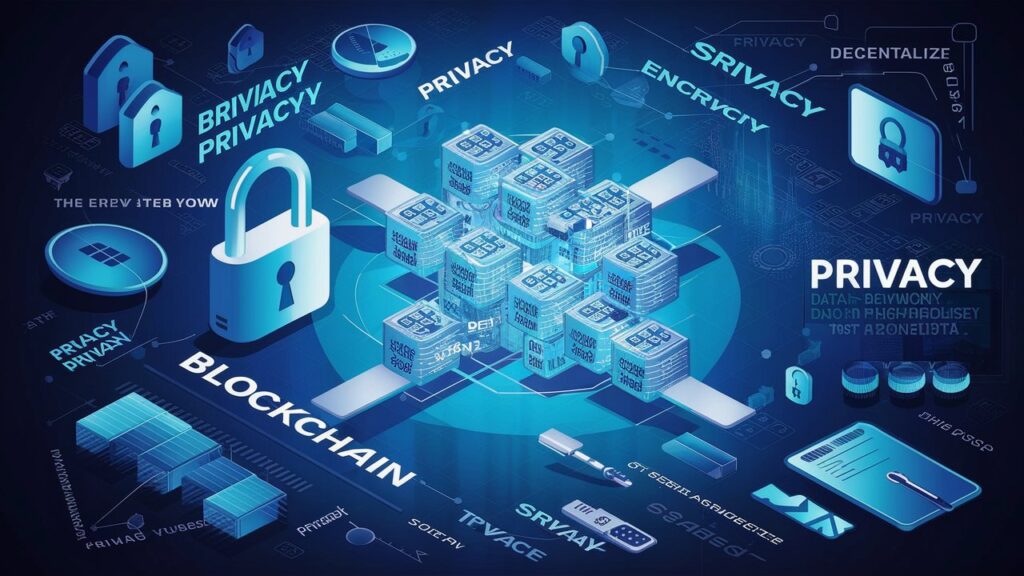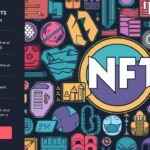
Introduction
In today’s advanced age, information security has ended up a fundamental concern. With expanding occurrences of information breaches and unauthorized get to, the require for secure information administration frameworks is more squeezing than ever. Enter blockchain technology—a progressive instrument that guarantees improved security and information security. This article dives into how blockchain bolsters information protection, advertising bits of knowledge into its components and benefits.
Understanding Blockchain Technology
What is Blockchain?
Blockchain is a decentralized computerized record that records exchanges over different computers. This guarantees that the recorded information cannot be changed retroactively without the change of all consequent pieces, which requires the agreement of the arrange majority.
Key Highlights of Blockchain
Decentralization: Not at all like conventional centralized databases, blockchain works on a decentralized arrange of nodes.
Immutability: Once information is recorded in a piece, it cannot be changed or deleted.
Transparency: Exchanges are unmistakable to all members in the arrange, advancing openness and trust.
Security: Progressed cryptographic procedures are utilized to secure data.
Blockchain and Information Privacy
Decentralized Information Storage
One of the essential ways blockchain bolsters information protection is through decentralized information capacity. Not at all like centralized frameworks where information is put away in a single area, blockchain disseminates information over a organize of computers. This makes it altogether harder for programmers to get to and compromise information, as there is no single point of failure.
Encryption and Cryptography
Blockchain employments strong encryption procedures to secure information. When information is included to the blockchain, it is scrambled and connected to the past piece utilizing a cryptographic hash. This guarantees that the information is secure and tamper-proof. Indeed if a programmer oversees to pick up get to to the blockchain, they would require to unscramble the information, which is essentially incomprehensible without the encryption keys.
Pseudonymity and Anonymity
Blockchain underpins information security through pseudonymity, where clients associated with the blockchain utilizing special cryptographic addresses instep of individual identifiers. This makes a difference in securing the character of the clients. In a few cases, blockchain can too bolster total namelessness, guaranteeing that client characters are not connected to their transactions.
Smart Contracts and Privacy
What are Shrewd Contracts?
Smart contracts are self-executing contracts with the terms of the assention specifically composed into code. They naturally implement and execute the terms of a contract when predefined conditions are met.
Privacy through Shrewd Contracts
Smart contracts can improve information protection by minimizing the require for mediators and guaranteeing that as it were the important parties have get to to the information. For occurrence, in a money related exchange, a savvy contract can guarantee that touchy monetary data is as it were unmistakable to the parties included in the exchange and not to any third-party intermediaries.
Zero-Knowledge Proofs
What are Zero-Knowledge Proofs?
Zero-knowledge proofs are cryptographic strategies that permit one party to demonstrate to another that a articulation is genuine without uncovering any data past the legitimacy of the explanation itself.
Application in Blockchain
In blockchain, zero-knowledge proofs can be utilized to confirm exchanges without uncovering the exchange subtle elements. This permits for upgraded security, as clients can demonstrate the legitimacy of their exchanges without uncovering delicate information.
Blockchain and Administrative Compliance
GDPR and Information Privacy
The Common Information Assurance Control (GDPR) is a control in EU law on information assurance and security. Blockchain innovation, with its accentuation on security and protection, can offer assistance businesses comply with GDPR necessities. For illustration, the permanence of blockchain can guarantee information judgment, whereas pseudonymity can ensure client identities.
HIPAA Compliance
In the healthcare segment, blockchain can bolster compliance with the Wellbeing Protections Compactness and Responsibility Act (HIPAA) by guaranteeing the secure and private taking care of of understanding information. Blockchain’s encryption and get to control components can secure delicate wellbeing data from unauthorized access.
Use Cases of Blockchain in Information Privacy
Healthcare
In healthcare, blockchain can secure quiet records, guaranteeing that they are as it were open to authorized faculty. This can anticipate unauthorized get to and guarantee understanding confidentiality.
Finance
In the budgetary division, blockchain can ensure touchy monetary information and guarantee that exchanges are secure and private. This can offer assistance avoid extortion and unauthorized get to to money related information.
Supply Chain Management
Blockchain can upgrade information security in supply chain administration by guaranteeing that touchy data, such as provider subtle elements and exchange records, are as it were available to authorized parties.
Challenges and Limitations
Scalability Issues
One of the challenges of blockchain innovation is versatility. As the number of exchanges increments, the blockchain can ended up slower and more costly to keep up. This can affect its capacity to handle expansive volumes of information efficiently.
Regulatory and Lawful Hurdles
The administrative scene for blockchain is still advancing, and businesses may confront legitimate challenges when actualizing blockchain arrangements. It is fundamental to remain educated approximately administrative advancements and guarantee compliance.
Integration with Existing Systems
Integrating blockchain with existing frameworks can be complex and exorbitant. Businesses require to carefully consider how blockchain can be coordinates into their operations without disturbing existing processes.
Future Prospects
Advancements in Blockchain Technology
Advancements in blockchain innovation, such as the improvement of more adaptable and effective agreement components, are likely to address a few of the current impediments. This will make blockchain more available and commonsense for businesses of all sizes.
Increased Selection of Blockchain
As mindfulness of blockchain’s potential develops, more businesses are likely to embrace the innovation to bolster their information protection endeavors. This expanded selection will drive development and lead to the advancement of unused blockchain-based arrangements for information privacy.
Conclusion: (Blockchain support data privacy)
Blockchain innovation offers a vigorous arrangement for upgrading information protection. By leveraging its highlights such as decentralization, encryption, pseudonymity, and keen contracts, businesses can ensure touchy information and guarantee administrative compliance. Whereas there are challenges to overcome, the future prospects for blockchain in supporting information protection are promising. As innovation propels and appropriation increments, blockchain has the potential to revolutionize the way we handle information protection.


